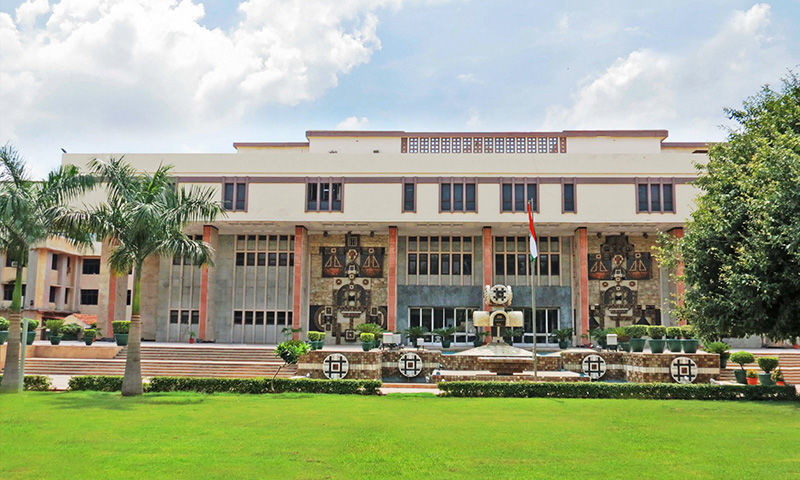Ankit Kumar vs. Govt. of NCT of Delhi: Can Courts grant admission after passing of an Academic Session?

The Delhi High Court has laid down guidelines where the Court can direct the school to grant admission to the EWS Category student as per the Right to Education Act, 2009.
FACTS
Writ Petition under Section 12(1)(c) of the Right to Education Act, 2009
- The petitioner through his father applied for admission in class KG/Pre-Primary in EWS (Economically Weaker Section) Category to the DoE (Directorate of Education) for the academic year of 2023-24 on 9th February.
- DoE conducted a computerized draw of lots through which the petitioner was shortlisted for admission in the KG/Pre-Primary class in the Respondent 2 school.
- The school( respondent 2) declined to admit the petitioner despite of several representations made by the petitioner to the school and statutory authorities, the result was not favorable to them.
- Therefore, the petitioner filed a writ.
ISSUE
- Can the Court direct the school to admit the petitioner in the school after the passing/completion of the Academic Session (2023-24) to which the petitioner had applied and was allotted seat?
PETITIONER’S ARGUMENTS
- The petitioner made representations to both the respondent school and statutory authorities, seeking admission as per the DoE’s allotment, but did not receive a favorable response.
- The petitioner cited the case of Shivank Mathur v. Directorate of Education. In that case the petitioner was able to get admission in the class allocated through the draw of lots when the session was about to end.
RESPONDENT’S ARGUMENTS
- The respondent argued that in similar cases where petitions were taken up after the academic year ended, courts could only grant admission for the subsequent year if there had been an interim order of provisional admission or seat reservation during the pending writ petition. Since no such interim order was passed in this case, the petitioner’s right to admission for 2023-2024 expired with the end of the academic year.
- The unfilled EWS seats from 2023-2024 would be carried forward to 2024-2025. However, without an interim order reserving a seat specifically for the petitioner, these seats should be available for all EWS applicants for the new academic year. It would be unfair to reserve a seat for the petitioner in the next academic session without the petitioner reapplying and competing in the computerized draw of lots conducted by the DoE.
JUDGMENT
The Court dismissed the petition as to the academic year in which the child was allocated the seat was over and hence the right to claim that seat perished as the petitioner did not approach the court during that particular year.
ANALYSIS
Is Right to Education properly being followed?
The court has maintained consistency in the legal framework. They have ensured fair application of admission rules by making the unfulfilled seats reserved for all the eligible candidate in the next academic year. By doing this, they are not giving the upper hand to anyone who has not reserved their seats from the previous year’s allocation. The petitioner can apply for reservation for next year but they have been provided a time limit for it, which is the year of allocation. The petitioner can also apply for next year.
The cons however overpower the pros, the petitioner missed an academic year due to procedural delays and now they are going to miss another if they don’t reapply. The decision highlights the rigid nature of legal and administrative processes, potentially neglecting the best interests of disadvantaged students. The petitioner did not receive immediate admission, which might not address urgent educational needs. As far as reapplying is concerned, the petitioner is from the EWS category, and therefore reapplying and getting an allocation is going to be extremely difficult.
Summary of Proceedings
Right to Education – Still a distant reality for many?
The petitioner, in his prayer, wanted the respondent school to admit him as per the draw of lots. But the academic year for 2023-24 was over and unfortunately, the petitioner hadn’t applied for the academic year 2024-25.
The court noted that there are three categories of students who approach the court with respect to the allotment during the academic year. Students who approach the court for admission can fall into three categories:
- Students with an interim order for provisional admission.
- Students with an interim order reserving a seat for them.
- Students who approach the court after the academic year is over without interim orders.
If the court grants provisional admission, the student can be admitted and progress to higher classes pending the final decision. If the court reserves a seat, the unfulfilled seat from the previous year can be carried forward and reserved for the petitioner in the next academic year.
Without an interim order, the student’s right to admission for that academic year expires -. And the unfulfilled EWS seats from the previous year should be available to all eligible applicants in the following academic year.
The petitioner approached the court after the 2023-24 academic year ended, falling into the third category. The court ruled that the petitioner cannot claim a seat for the 2024-25 academic year without a new allotment. The petitioner can apply for class 1 in the 2024-25 academic year as an EWS student, said the court.
The petitioner’s council relied on Shivank Mathur v. Directorate of Education, where the petitioner approached the court within the academic year and was granted admission.
The court, distinguished it from the current case as the petitioner in the case referred had approached the court before the end of the academic session on 28th February 2023, and therefore the court could grant admission according to the draw of lots from 2022-23.
In the current case, the petitioner approached the court after the academic year was over therefore the court did not grant the petitioner any relief based on the Shivank Mathur judgment. The writ petition was disposed of by declining any relied to the petitioner. He has the liberty to apply for admission for the academic year of 2024-25 as an EWS student to the DoE.
About the Author
Ms. Charu Singh
Charu Singh is a first-year B.B.A., LL.B. (Hons.) student at National Law University, Jodhpur, with a stellar academic record and extensive extracurricular involvement. Charu has done a virtual internship with Clifford Chance, volunteered with CanSupport and Goonj, and participated in the International Essay Contest for Young People. She is committed to legal education and social causes.
